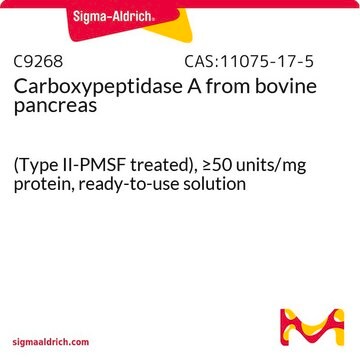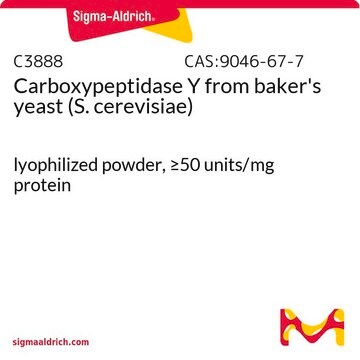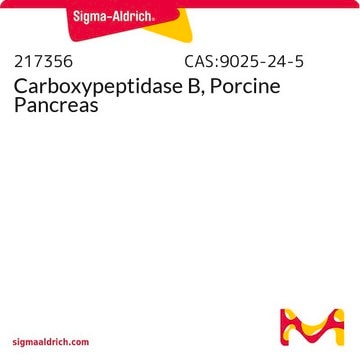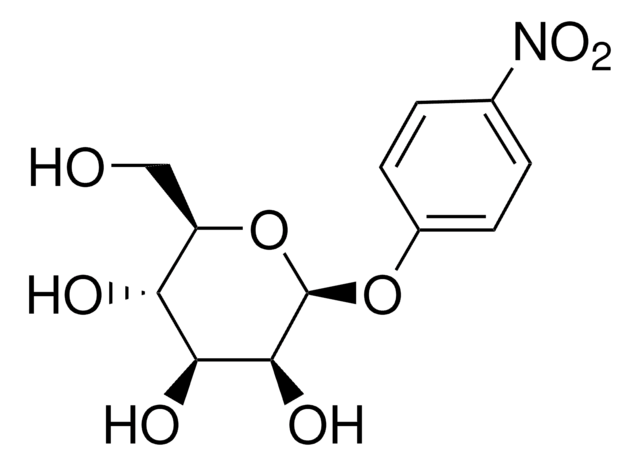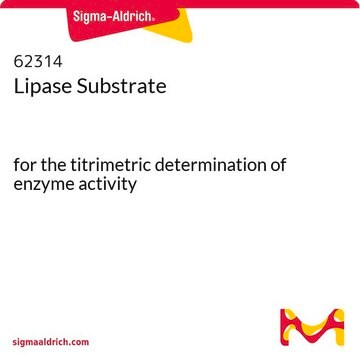H2508
Hippuryl-Arg
carboxypeptidase substrate, chromogenic, ≥98% (TLC), powder
Synonym(s):
N-Benzoyl-Gly-Arg
About This Item
Recommended Products
Product Name
Hippuryl-Arg, carboxypeptidase substrate
Quality Level
Assay
≥98% (TLC)
form
powder
solubility
water: 50 mg/mL, clear, colorless to faintly yellow
storage temp.
−20°C
SMILES string
NC(=N)NCCC[C@H](NC(=O)CNC(=O)c1ccccc1)C(O)=O
InChI
1S/C15H21N5O4/c16-15(17)18-8-4-7-11(14(23)24)20-12(21)9-19-13(22)10-5-2-1-3-6-10/h1-3,5-6,11H,4,7-9H2,(H,19,22)(H,20,21)(H,23,24)(H4,16,17,18)/t11-/m0/s1
InChI key
GFLCPYUSPYXNBV-NSHDSACASA-N
Looking for similar products? Visit Product Comparison Guide
Application
- aminopeptidase from Trogoderma granarium
- exopeptidase from Bactrocera oleae Gmelin, midgut of Plagiodera versicolora
- carboxypeptidase from Pichia pastoris
Biochem/physiol Actions
Substrates
Storage Class Code
11 - Combustible Solids
WGK
WGK 3
Flash Point(F)
Not applicable
Flash Point(C)
Not applicable
Personal Protective Equipment
Choose from one of the most recent versions:
Already Own This Product?
Find documentation for the products that you have recently purchased in the Document Library.
Customers Also Viewed
Our team of scientists has experience in all areas of research including Life Science, Material Science, Chemical Synthesis, Chromatography, Analytical and many others.
Contact Technical Service
